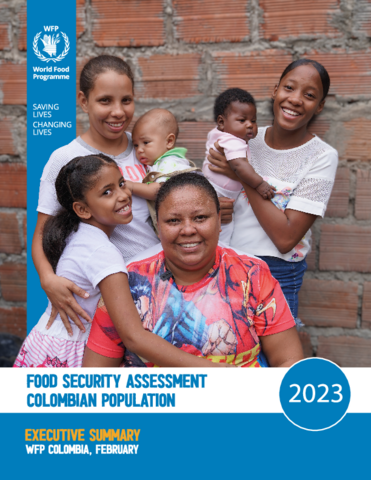
Food insecure households are unable to access food in a sufficient manner and have difficulty meeting their basic needs, they must resort to unsustainable consumption strategies and face food shortages, hunger, and malnutrition.
Of the 15.5 million Colombians who are food insecure, 2.1 million are severely food insecure and 13.4 million are moderately food insecure. Severely food insecure households have extreme gaps in food consumption and have depleted their livelihoods, while moderately food insecure households have inadequate food consumption and must adopt survival coping strategies, such as selling their assets to cover their basic needs.
Due to a combination of structural and conjunctural factors, the food security situation in Colombia has deteriorated. Therefore, integrated, short to medium-term interventions are needed to mitigate current levels of food insecurity among the most vulnerable segments of the population. These interventions should include a humanitarian response component in emergency situations, complemented by measures aimed at enhancing agricultural production and market functionality at local and national levels, expanding access to potable water, as well as strengthening and expanding social protection systems, including school feeding.
